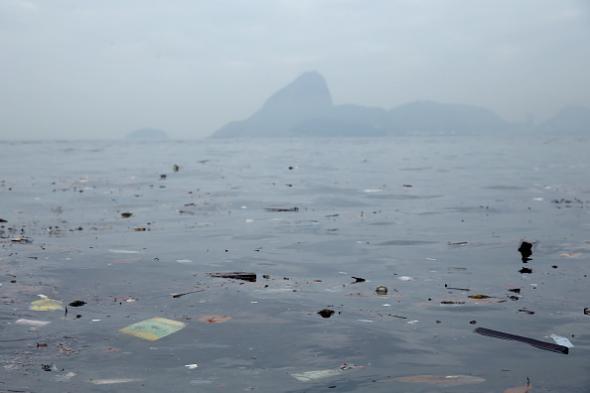This, from Rio de Janeiro, seems bad.
Athletes in next year’s Summer Olympics here will be swimming and boating in waters so contaminated with human feces that they risk becoming violently ill and unable to compete in the games, an Associated Press investigation has found.
The AP commissioned studies of virus and bacteria levels at three venues scheduled to host Olympic events next summer in Rio—Guanabara Bay (sailing), Copacabana beach (swimming), and Rodrigo de Freitas Lake (canoeing and rowing). The tests found that “what you have there is basically raw sewage,” said a marine biologist from the Southern California Coastal Water Research Project who looked at the results.
Part of the problem, apparently, is that the International Olympic Committee and Brazilian authorities test only for bacteria levels when judging water quality—but viruses can be just as harmful to human health.
The test results found high counts of active and infectious human adenoviruses, which multiply in the intestinal and respiratory tracts of people. These are viruses that are known to cause respiratory and digestive illnesses, including explosive diarrhea and vomiting, but can also lead to more serious heart, brain and other diseases.
And the tests for bacteria weren’t reassuring either.
In 75 percent of the samples taken at the Olympic lake, the number of fecal coliforms exceeded Brazil’s legal limit for “secondary contact,” such as boating or rowing — in two samples spiking to over 10 times the accepted level.
The rehabilitation of Rio’s water was supposed to be a major benefit of infrastructure spending ahead of the Games, but the relevant sanitation projects are behind schedule; the city’s mayor has called the failure to follow through on cleanup plans a “shame” and a “wasted opportunity.”
